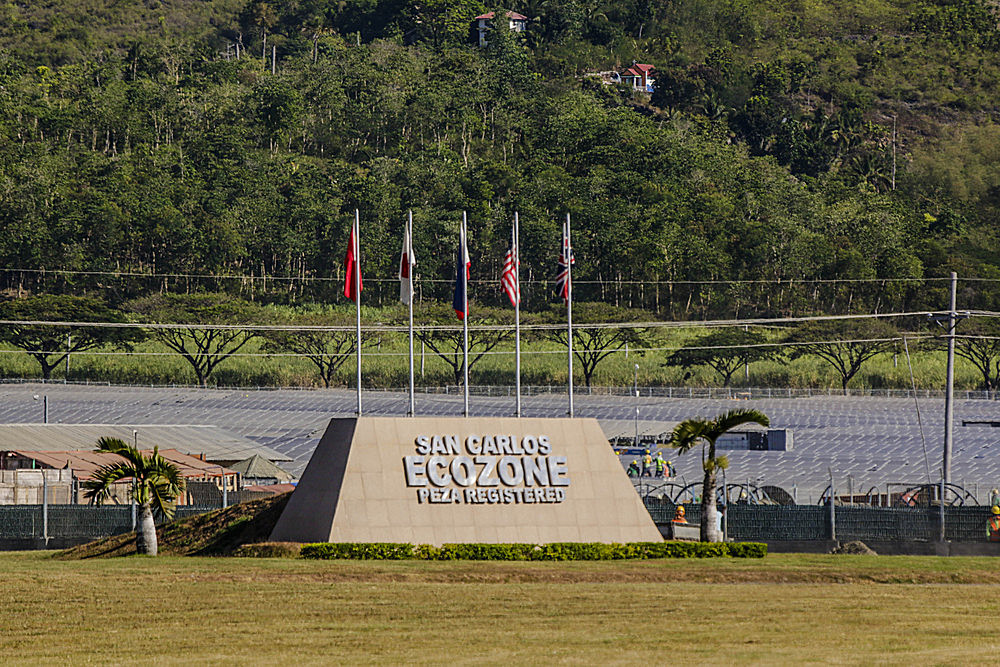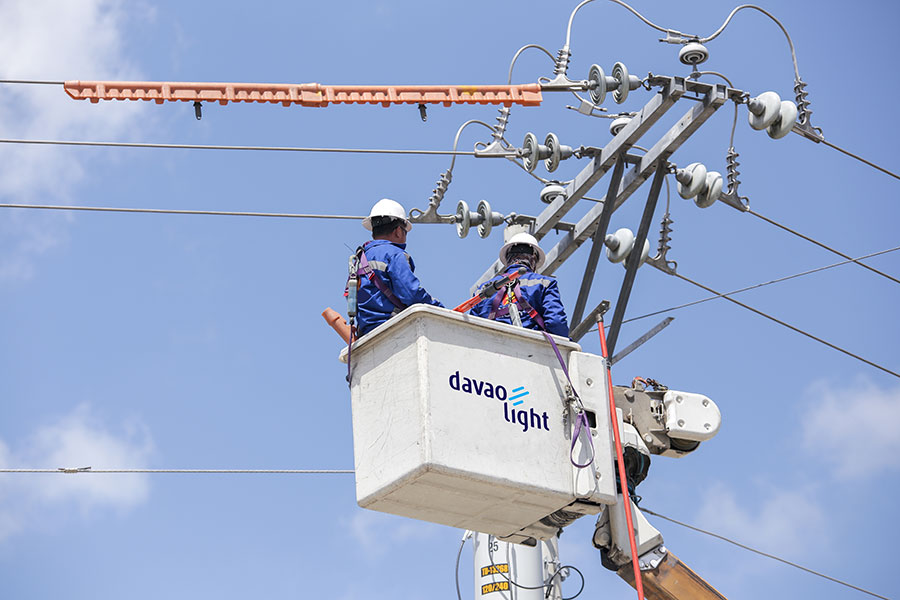Images of sugarcane fields used to be what come to mind first at the mention of San Carlos, a second-class city in the province of Negros Occidental. Today, the city is more known for its solar, bioethanol, and biomass power plants as it shapes up to be the renewable energy hub of the Philippines.
It was in the early 1910s when the first sugar mill was built in the area, perking up the locality’s economy. Since then, the place has been home to the country’s biggest sugarcane plantations and among the biggest sugar refineries in the province.
Only recently, amid the decline in the growth of the country’s sugar industry beginning in the 1980s, San Carlos began seeking other means of generating revenue. Among these was harnessing sunshine, one of its most abundant resources.
Compared to most Philippine cities, San Carlos is more resilient to extreme weather due to its deep natural mangrove harbor. With limited cloud cover, the city also enjoys more sunshine than the rest of the country and, thus, has much potential for renewable energy (RE).
The City of San Carlos is pioneering the promotion of renewables with the establishment of four RE facilities, including a 5-megawatt bioethanol power plant of San Carlos Bioenergy, Inc.; 45-MW solar power plant of San Carlos Solar Energy, Inc. (Sacasol); 19-MW biomass plant of San Carlos BioPower, Inc.; and the 59-MW solar power farm operated by AboitizPower subsidiary San Carlos Sun Power, Inc. (SacaSun).
What started as an alternative means for the city to earn has now become an advocacy that is paving the way for San Carlos to become the leader of renewable energy production in the Philippines.
“I never doubted the capacity and capability of San Carlos City to advance forward and compete with other cities, particularly on renewable energy, considering that our city has all the resources,” San Carlos City Mayor Gerardo P. Valmayor Jr. said.
According to Valmayor, the city is committed to establishing more renewable energy projects, particularly wind power and mini hydro power plants, as well as encouraging residents to install RE equipment in their households and business establishments.
San Carlos’ 400-hectare economic zone was established in 1998 to cater to investors from various industries and has been prioritizing renewable energy players in its bid to become a sustainable city.But for a city like San Carlos, striving to become the country’s leading RE producer goes beyond hosting RE facilities.
“With urban areas having high energy consumption, they are responsible for a big percentage of greenhouse gas emissions. Due to rapid development and population growth, San Carlos has adopted strategies that promote sustainability,” Valmayor said.
The local chief executive said that all their projects should be aligned with the city government’s 20-year Master Development Plan, in which one of the programs outlined is the establishment of key energy-efficient infrastructure such as roads, solid waste management facilities, as well as RE projects.
In 2017, the city conducted a community-level greenhouse gas (GHG) emissions inventory, which sought to calculate emissions from commercial and residential buildings, transport, waste, water treatment, agriculture, and industry.
Looking back, Valmayor said San Carlos has gone a long way since it opened its doors to its first RE facilities. He cited the benefits and potential of solar farms, saying that these are among the steps toward achieving a sustainable low-carbon future for the city.
Not only are these facilities providing clean renewable energy to the city and the rest of the Visayas, its operations have also helped sustain the economy of San Carlos.
SacaSun’s 59-MW solar power facility, which was inaugurated in 2016, has employed more than 4,000 workers throughout its construction phase. It is also estimated to curb emissions of more than 44,000 tons of carbon dioxide a year in the next 20 years, which is equivalent to taking around 10,000 cars off the road.
“Aside from providing numerous jobs and helping the city’s economy, we believe SacaSun is committed to fulfilling its social responsibilities. We look forward to a fruitful and reliable partnership in the city’s thrust to become a livable community by improving the quality of life of every San Carloseño,” said Valmayor.



